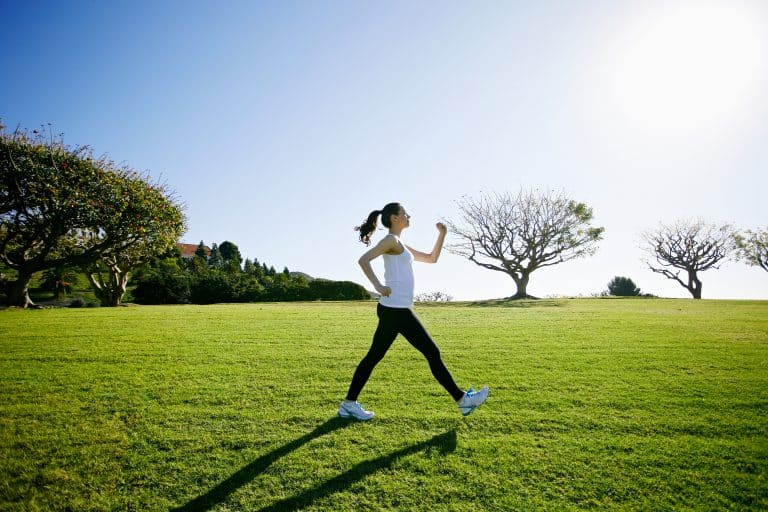Is a plant-based diet for athletes as effective as an animal-based diet?
The short answer is: yes. ‘When I ask people if you can grow muscles from eating plant-based food all day, they often answer in the negative,’ says Luc van Loon, professor of physiology of exercise at Maastricht University. ‘But of course you can. As long as you eat a lot of it. The only question is: how efficient is it?’ Van Loon researches the relationship between nutrition and exercise. ‘For muscle production, we need both nutrition and physical exertion,’ he explains. ‘We also know that the two factors together have a stronger effect. Hence, many athletes eat protein after exercise.’
Proteins are a source of amino acids, which are the building blocks of our muscles. ‘In general, plant proteins contain fewer essential amino acids, and less leucine in particular, than animal proteins,’ says Van Loon. ‘But this is not true for all plant proteins. Maize, for example, has a high concentration of leucine: an important amino acid to stimulate muscle production.’ You can overcome amino acid deficiencies by simply eating more of a particular protein, either by combining different plant proteins. ‘In doing so, it may be wise to enlist the help of a dietician or sports dietitian,’ says Van Loon.
Which plant proteins are best for an athlete?
‘That depends on the energy requirements,’ says Esther van Etten, who coaches both (top) athletes and recreational athletes in her Amsterdam practice. ‘A two-metre basketball player has a different energy – and therefore protein – requirement than a weight-class athlete like a judoka.’ As a sports dietitian, Van Etten looks at the whole range of nutrients, including proteins. In doing so, she gives each athlete tailor-made advice. ‘What is the right amount for a person to keep performing well? And what is his or her goal? Timing is also important. If it is not possible to eat a meal immediately after training, a protein powder can offer a solution.’
It is important that a protein is easy to digest and well absorbed in the body. According to Luc van Loon, many factors influence this. ‘How was the meal prepared? Is the food heated or not? Is the food eaten upright or sitting down? Studies usually focus on a protein extracted from the food. We don’t yet know what the effect is when everything comes together on one plate. More research is needed for that.’
How do you get to a good protein intake?
‘Variety is the key word,’ says Esther van Etten. ‘That way, you make sure you get all the amino acids you need. Peas, for instance, are rich in leucine and brown rice contains a lot of the amino acid methionine. You often see that combination.’ She further recommends sticking to the 2(0) – 3 – 4(0) rule. ‘Eat up to 2 grams of protein per kilogram of body weight per day. The exact amount varies from 1.2 to 2 grams and depends on the athlete, goal, amount of training and current diet. After strength training, take 3 grams of leucine and maintain 20 to 40 grams of protein per meal.’ With a plant-based diet, also consider the amount of carbohydrates and fats, which you also need as an athlete. Van Etten: ‘I coach a judoka who is allowed to eat less because she needs to lose weight. Her diet consists almost entirely of proteins with some carbohydrates. But for a footballer, that is obviously not an option.’
Finally, Van Etten wants to dispel a myth. ‘Many clients think that oat or almond milk contains protein because they are alternatives to milk. But they are not.’ The word ‘meat substitute’ is also misleading: ‘Such a product often contains half as much protein as a piece of meat or fish. So again, pay close attention to the combination with other foods.’
Cosun is working on healthy food with more vegetable proteins in various ways. Examples include extracting nutritious proteins from beet leaves, field beans and other new protein crops.
Cosun Nutrition Center
For more information on a plant-based diet and future webinars, please visit cosunnutritioncenter.com.

